Shuja Haider's epic journey from queueing for food at Data Darbar to Coke Studio
Early trials of life and fate have made music-making into a humbling experience for ‘Khaki Banda’ hitmaker
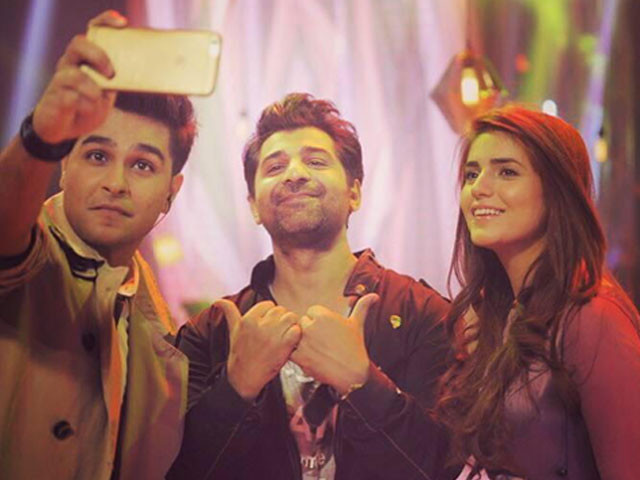
PHOTO: PUBLICITY
But Shuja is far from it. In fact, the moment you succeed in breaking into Shuja’s past, his lips start to tremble and you notice a sense of fervour in his voice. He wants you to listen to what he has to say - not just as a backstory, but as an experience that still helps him in becoming whatever he is destined to be. The shadow he doesn’t want to lose when stars shine bright.
Exclusive: Coke Studio 10's line-up will leave you starstruck
It’s a hot and unusually humid night in 1997 Lahore. 14-year-old Shuja has returned home after the daily grind only to find out that his younger siblings are nowhere to be seen. “There was no food at home and we can’t pass another day by asking people for money,” said a rather dejected Sajid Haider ( Shuja’s father) who was otherwise a very self-respecting man. “I’ve asked them to have food at the Langar at Data Darbar.”
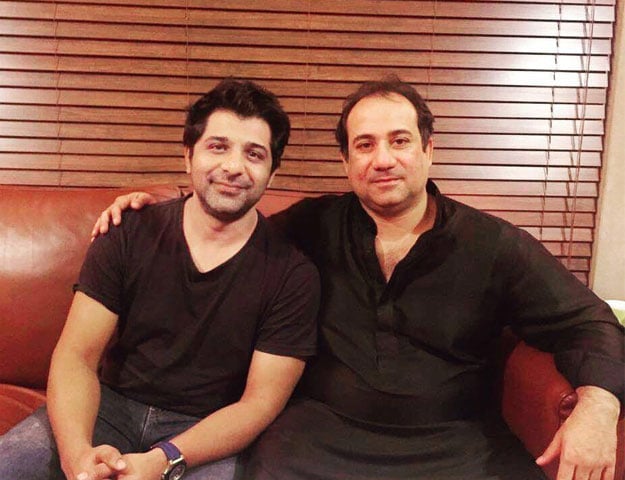 PHOTO: PUBLICITY
PHOTO: PUBLICITYFurious at his father’s resolution, Shuja rushes to the Darbar to bring back his younger brothers. While on his way, a thought haunts him: if he were to do as planned, the result would be another day squealing of empty bellies - and so, with a heavy heart, he also joins the cue. He is beaten with the stick for not being able to assemble properly and finally when his turn comes, he finds out that the person distributing the food actually belongs to his neighbourhood.
“You get that feeling right,” he says while sitting in his studio in DHA. “I mean I don’t have words to explain what I was going through back then but I am glad I went through all that.”
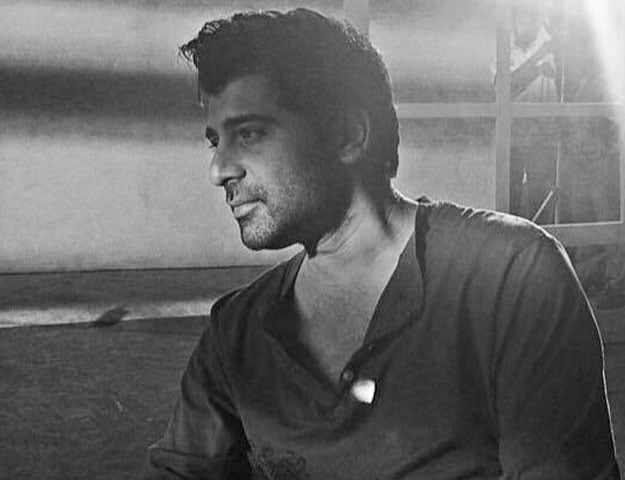 PHOTO: PUBLICITY
PHOTO: PUBLICITYFrom the mid-90s till 2002, Shuja’s family went through a major financial crisis that was a result of a family dispute. Resultantly, from a very tender age, the Nawazishein Karam hit-maker had to turn into the sole breadwinner.
Why singer Ali Khan’s life didn't really change after Coke Studio
Grandson to known musician Ustad Master Sadiq Ali Sahab (1935-1984), Shuja began contributing to the household by imparting guitar lessons. In the scorching afternoon heat, he would eagerly wait near the Baadshahi Masjid for a boy who would come pick him on his Sohrab bicycle and take him to his mechanic shop where Shuja would teach him.
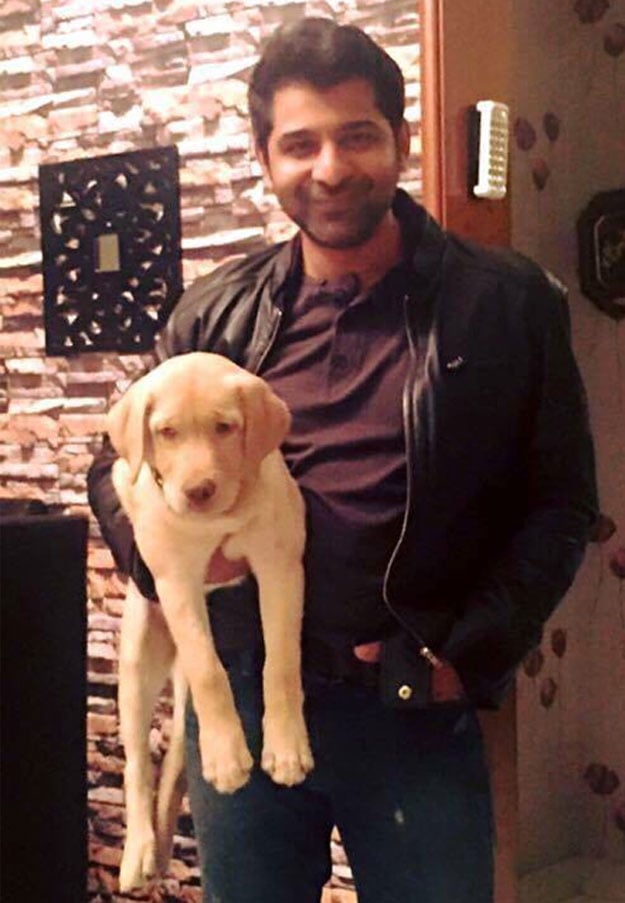 PHOTO: PUBLICITY
PHOTO: PUBLICITYHe even slept in a factory for a whole year after moving to Karachi in search of greener pastures. Shuja remembers vividly the dismantled train seat that served as his bed and the rats that plagued his resting space.
“It’s horrific experiences like these that provided so much strength to my soul,” Shuja takes a sigh of relief. Later on, it was under the tutelage of people like Haroon from Awaz and Strings, who had recently made a comeback that Shuja’s talent was eventually discovered and put to good use. He also released solo songs Tera Woh Pyar, Baanwre and Nawaazishein Karam, two of which were also re-rendered in Coke Studio.
“Today, when I roam around in a Land Cruiser, I know I have worked my way up and earned every single penny through my blood and sweat. It is a very fulfilling experience.”
Perhaps it was the realisation of his journey that culminated in Shuja’s choice of songs for his debut as producer for Pakistan’s chief music show. Where Aaqa is an extension of a Hamd that talks about counting your blessings, Khaaki Banda preaches you to be humble for God has given hope in the dimmest of times.
In fact the lyrics, ‘I’ve seen the sun that rises, also set, I’ve seen the flickering lamp blaze anew, the orphans who have no one left in this world, I’ve seen them find means to flourish, People say that success is beyond reach, I’ve seen the impossible become possible,’ seem to mirror Shuja’s own life.
“That is very true. Khaaki Banda is very much what inspires me. Because I have seen all what Bulleh Shah says happen firsthand; I want the world to know and acknowledge it.” However, the swelling differences and conflicts within the Pakistani society are what bother Shuja the most. If it’s not linguistic, it’s sectarian, if it’s not sectarian than it’s religious and if there’s nothing else, it takes the shape of an ethnic divide.
“We need to be more accepting of each other and learn to stop prioritising worldly affairs. Allama Iqbal never envisioned a Pakistan that was divided in Balochistan, Sindh, K-P and Punjab; he wanted a Pakistan that could be one big unit. I basically took the more Sufi route to this thought while keeping my past in mind.”
Momina Mustehsan to render Qaseeda Burda Shareef this Ramazan
Drawing from different mythological stories and happenings from the history of Islam and philosophy, a sense of moral correctness is the recurrent theme of our conversation. To have a pure soul, to not utter words that hurt and to have a clear conscience as a musician is something that Shuja says he goes about and suggests others to practice. But commercial work, anywhere in the world crosses all boundaries of good and bad and you’re left with no choice but to compromise on what you stand for.
 PHOTO: PUBLICITY
PHOTO: PUBLICITY“Yes. It is very difficult to maintain that balance and a lot of my work might sound contradictory to what I stand for or what I say I stand for,” confesses Shuja. But he strongly believes that once you have a dedicated audience that is waiting for you to say something then you must really have something to say.
“There’s something called made to order music. We are producers; this is our bread and butter. When I am making something for myself, I’ll make sure my soul reflects in it,” Shuja asserts. Wouldn’t that be a very unnatural product at the end of the day? “Well, yes, but it wasn’t my song to begin with, someone else had conceived it and just wanted me to take it to the finishing line.”
Perhaps every middle-aged musician wants to bring a change to the society and he is one of the many, but he has always written the lyrics to his own songs or borrowed them entirely.
Nevertheless, as a Pakistani he feels deeply for the nation and what its citizens have been through the ages. “We’ve seen a lot of death,” says Shuja while stubbing out his cigarette.
Patari's upcoming project vows to uncover a Pakistan never heard before
“We saw people die and we went to work the next day, so our conscience died as a result of that. Youtube was banned in Pakistan; new-fangled restrictions have suffocated our expression on social media and despite all this chaos, we see Pakistanis excelling around the world. It signifies there’s something special about Pakistanis that the world doesn’t get to hear. About time, we focused on the positives.”
 PHOTO: PUBLICITY
PHOTO: PUBLICITYFor the first time in our conversation, Shuja sounded like just another Pakistani celebrity, who wants to paint a brighter picture against all the dark realities of our existence, instead of appropriating from them. The very idea that was once suggested to me by the wife of a retired brigadier who said, ‘you don’t have to show your storeroom to the visiting guest when everything else in the house looks prettier and serves the purpose’. But in doing so, we often forget that we actually have a storeroom in our house…
This throwback mashup video of famous Pakistani songs will make your day!
“That’s true and my argument is not associated with pointless optimism. I believe that highlighting the negatives shouldn’t be the agenda either. The news media in Pakistan and globally needs to act more responsibly. We tried to establish the musical side of Pakistan through Coke Studio and now people from Morocco to Brazil are shocked at this cultural force that has come out of here.”
There are no two ways about Coke Studio being the most successful and influential cultural export to have emerged from Pakistan in the past one decade. In fact, the show has played a vital role in the resurgence of Sufism in a region that was suddenly flooded by a counter narrative of terrorism and mayhem.
But even Coke Studio is a branded show at the end of the day and whenever a corporation has associated itself with art, the result has not been as appeasing for artists. Particularly for an artistic process as organic and inside-out as Shuja’s.
Mekaal Hasan set to release 'Andholan' in Pakistan under own record label
“We need to realise that business and art are two different things and they both don’t get along,” says Shuja. “The rickshaw wala who could sing so well will never feature alongside Mehwish Hayat in an advertisement for Tulsi. You will not watch it and I will not watch it either. You have to admit that as a society we reject people based on the way they look. I have faced it myself and I know many other talented people who have suffered the same.”
At the same time, Shuja believes that you do end up finding that ideal package quite often in Pakistan. He recalls how Shreya Ghoshal once told him that she loves Junoon but she is obsessed with Vital Signs because they all look so hot!
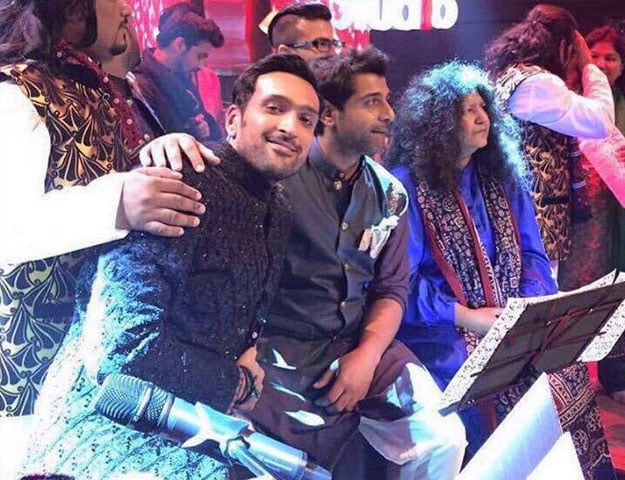 PHOTO: PUBLICITY
PHOTO: PUBLICITYMomina Mustehsan is another example who Shuja thinks is talented enough to be on a music show like Coke Studio and is pretty enough to catch the eye; the list that also comprises Ali Zafar goes on and on. He strongly believes the decision makers of our industry should be more considerate towards acknowledging genuinely talented people, regardless of their persona.
Guitarist Asad Ahmed pens emotional tribute to 'master' Aamir Zaki
“But at the same time, you should live with the reality, that had Ajay Devgn been in Pakistan, he would have never made it as a hero and Nawazuddin Siddiqui would have never got a break. We can’t change this mentality and if we do, than we will be trying to eliminate our own culture that has thrived over the years. ”
Which means - culture, which is a naturally occurring process should stop evolving. With the advent of Facebook and Twitter a lot of debate has been triggered against whitening creams and our obsession with fairness and all of that goes down the drain if we were to believe Shuja’s words.
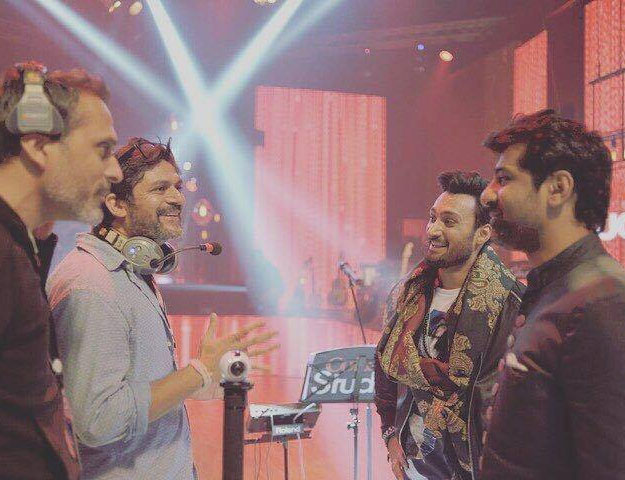 PHOTO: PUBLICITY
PHOTO: PUBLICITY“Of course culture is evolving and it has evolved. From villages to the cities from shrine singers to pop stars, all of this is a result of that evolution. It’s just how our society is shaped and it is bound to have an impact on how and what you perceive and think. The more we try and ‘adjust’ to our existing social archetypes and inclinations, the more problematic it will be to adjust. We need to merge with the society first and the change you’re aiming for, will happen naturally.”
Sanam Marvi, Rahat Fateh Ali Khan to collaborate on naat album
Where this debate is ongoing, one thing that will surely change in the next quarter of 2017 is Shuja’s career trajectory. Following the release of Coke Studio, he will be getting into live shows as a music director. So, the Mann Mayal OST composer may have a whole fresh audience to face.
“I don’t want people to understand me. I don’t expect anything from them. I believe the more discreet you are, the younger you remain. I have learnt this from working with Shoaib Mansoor. ”
Have something to add in the story? Share it in the comments below.

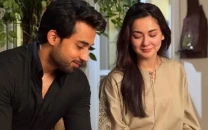


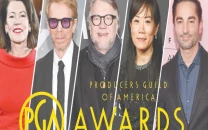

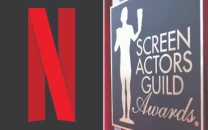












COMMENTS
Comments are moderated and generally will be posted if they are on-topic and not abusive.
For more information, please see our Comments FAQ